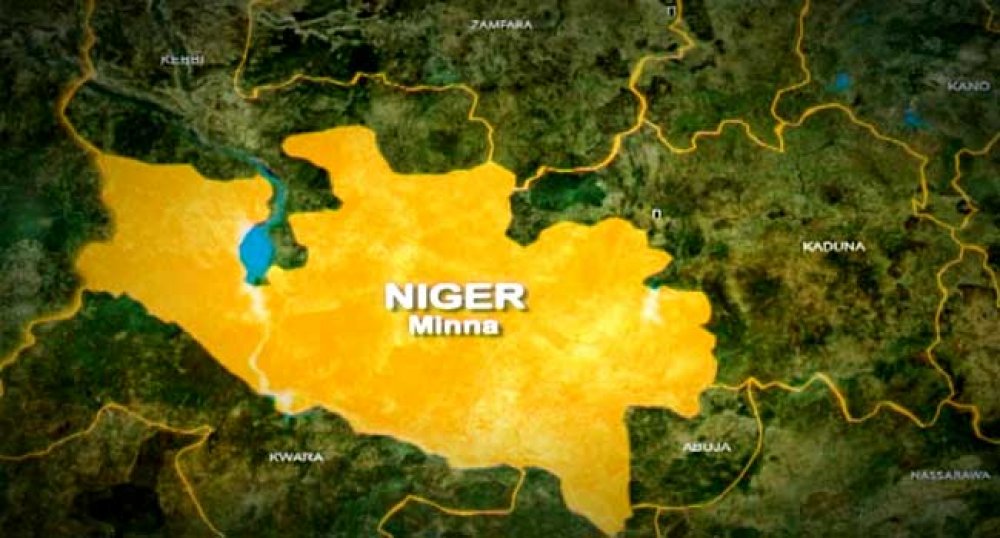The Blasphemy Accusation and Escalation of Violence:
The tragic event unfolded in Kasuwan Garba, a town within the Mariga Local Government Area of Niger State, Nigeria. Ammaye, a Muslim woman known for her food vending business, engaged in a conversation with a young man believed to be her nephew. During their exchange, the young man playfully suggested marrying Ammaye to “fulfil the Sunnah,” a reference to the practices and teachings of Prophet Muhammad. Ammaye’s response to this jest, perceived by some as blasphemous against the Prophet, ignited a firestorm of controversy that spiraled into a horrific act of violence.
The perceived blasphemy quickly spread through the community, inflaming religious sentiments and prompting a swift reaction. The matter was escalated to the local authorities, and Ammaye was brought before the District Head of Kasuwan Garba for questioning. During the interrogation, she allegedly reiterated her earlier statements, further fueling the outrage among the gathered crowd. Recognizing the volatile situation, the District Head handed Ammaye over to security personnel for a more thorough investigation. However, the situation rapidly deteriorated as a mob of enraged youths, unwilling to await due process, overpowered the security officials and seized control of Ammaye.
The Lynching and Police Response:
Before reinforcements could arrive, the mob unleashed their fury upon Ammaye. She was subjected to a brutal stoning, and ultimately, her lifeless body was set ablaze, marking a gruesome culmination of the escalating violence. The Niger State Police Command, in a statement released by its spokesman, Wasiu Abiodun, confirmed the incident and condemned the act of jungle justice. The police pledged to pursue justice by identifying, apprehending, and prosecuting all those involved in the heinous crime.
The police spokesman, Abiodun, provided details about the incident’s timeline, stating that it occurred on August 30, 2025, around 2:00 pm. He emphasized that the initial report indicated Ammaye’s utterances were deemed offensive to the Islamic faith, triggering the mob’s violent reaction. He reiterated the police’s commitment to upholding the law and urged the public to refrain from taking matters into their own hands, emphasizing the importance of allowing security agencies to handle such sensitive situations within the framework of legal procedures.
Community Reaction and Calls for Calm:
The Chairman of the Mariga Local Government, Abbas Adamu, also corroborated the incident and assured the public that calm had been restored to the area. This suggests that immediate measures were taken to prevent further unrest and ensure the safety of the community. The swift response by both the police and local government officials reflects a concerted effort to address the situation and prevent further escalation of violence.
The incident underscores the dangers of unchecked religious extremism and the devastating consequences of mob violence. While the police are pursuing justice through legal means, the tragedy highlights the urgent need for community-based initiatives to promote religious tolerance and respect for the rule of law. It also serves as a sobering reminder of the fragility of social order when emotions run high and the legal system is bypassed in favor of vigilante justice.
The Importance of Due Process and Religious Tolerance:
The tragic death of Ammaye serves as a stark reminder of the importance of due process and the rule of law in any society. The act of taking the law into one’s own hands, regardless of the perceived offense, undermines the very foundation of a just and orderly society. It creates a climate of fear and impunity, where individuals become both judge and executioner, bypassing established legal procedures and safeguards meant to protect the rights of all citizens. This incident underscores the urgent need to strengthen the rule of law and ensure that all individuals, regardless of their alleged transgressions, are afforded due process and a fair trial.
Furthermore, the incident highlights the critical need for promoting religious tolerance and understanding. While freedom of religion is a fundamental right, it should not be exercised in a manner that incites hatred or violence against others. Respect for diverse beliefs and practices is essential for fostering peaceful coexistence within communities. Education and dialogue play a vital role in nurturing a culture of tolerance, where differences are respected and valued, rather than becoming a source of conflict. This tragic event serves as a wake-up call to address the root causes of religious intolerance and work towards building more inclusive and harmonious societies.
The Role of Law Enforcement and Community Leaders:
Effective law enforcement plays a crucial role in preventing and responding to incidents of mob violence. Prompt and decisive action by law enforcement agencies is essential to deter potential perpetrators and protect vulnerable individuals. This includes providing adequate security to those accused of crimes and ensuring they are not subjected to extrajudicial punishment. The police must also conduct thorough investigations to bring those responsible for mob violence to justice, sending a clear message that such acts will not be tolerated. Furthermore, proactive community policing initiatives can help build trust between law enforcement and the public, fostering a collaborative approach to maintaining peace and order.
Community leaders, including religious leaders, traditional rulers, and elected officials, also have a vital role to play in promoting peace and preventing violence. They can use their influence to discourage acts of vigilantism and advocate for the resolution of disputes through peaceful means. By emphasizing the importance of dialogue, empathy, and respect for the rule of law, they can help foster a culture of non-violence within their


